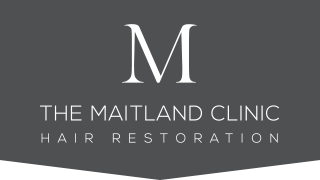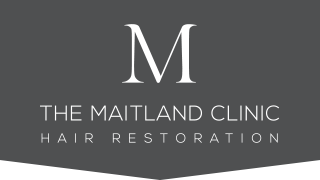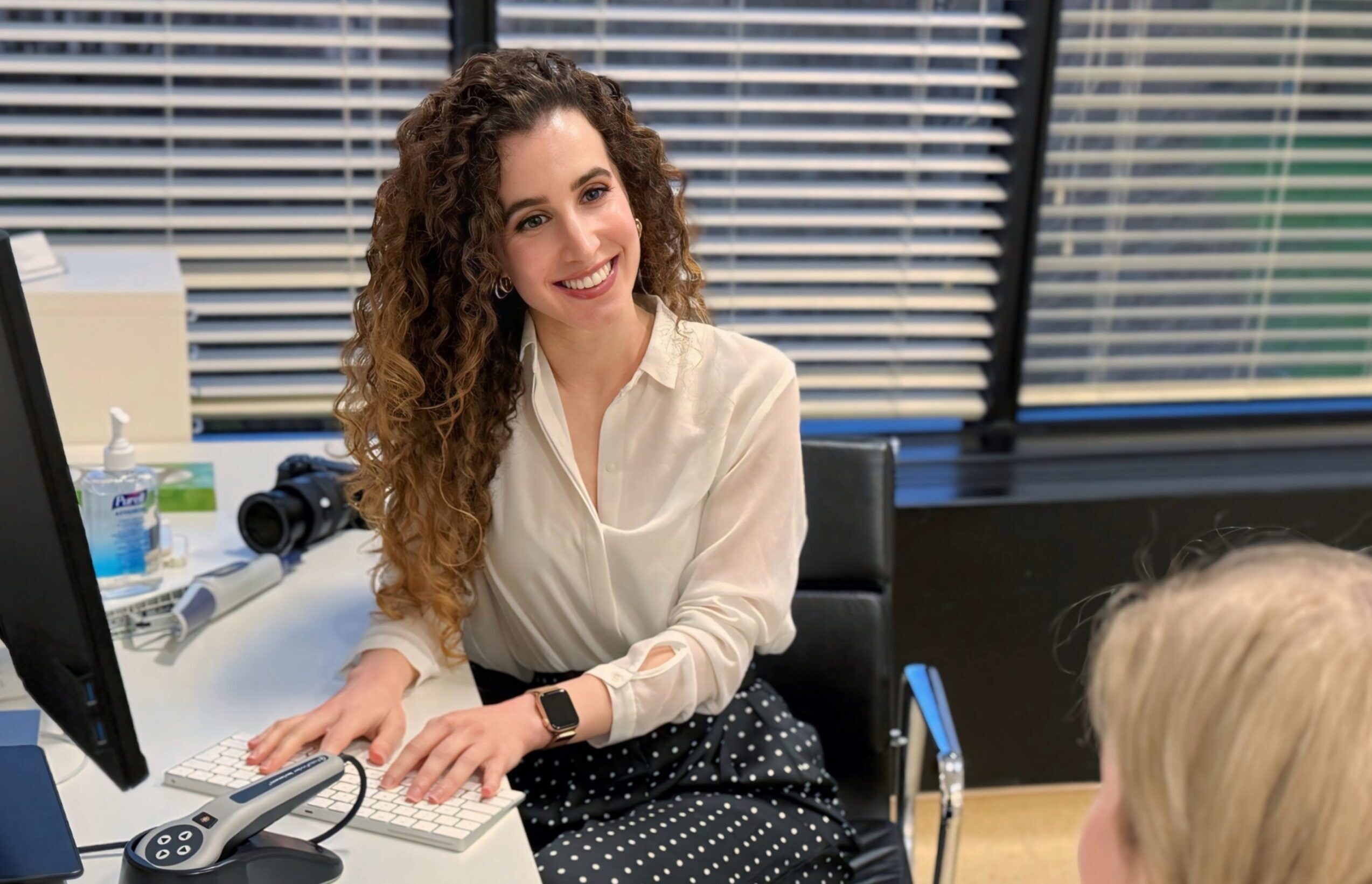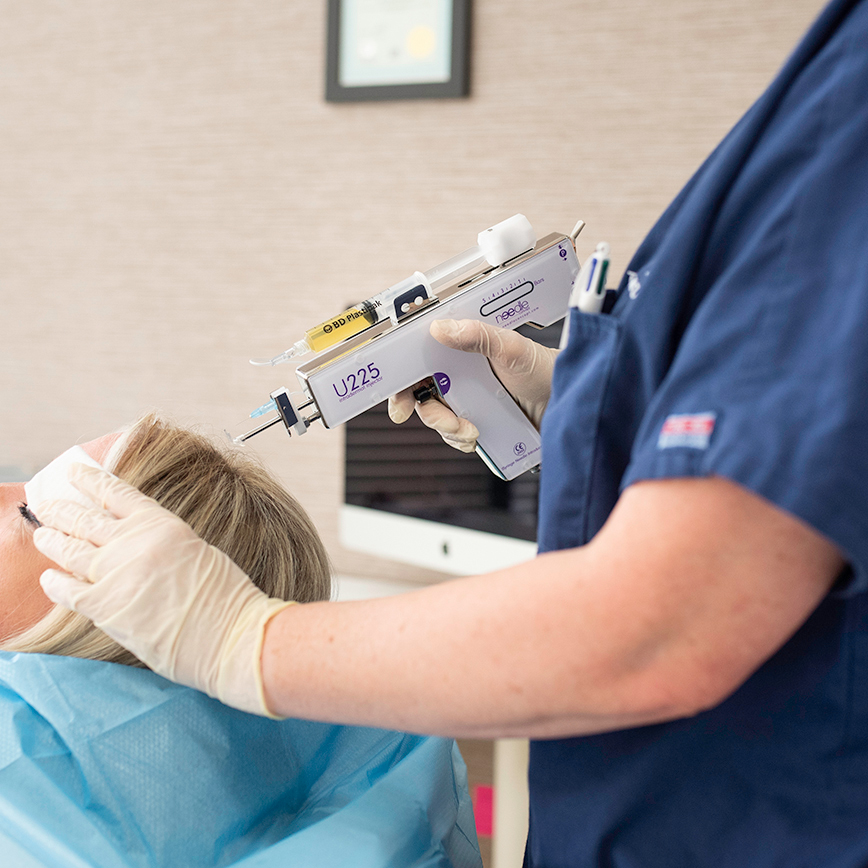Trichology explained
29th February 2024

According to research, those with a full head of hair are often deemed more physically – and also socially – attractive.
With these social norms at play, it’s no wonder that hair loss can have a detrimental impact on how we feel about ourselves. In a recent review of multiple hair loss studies, many of those affected by androgenetic alopecia, a genetic condition that impacts both men and women, experienced emotional distress, feelings of anxiousness, and diminished self-esteem.
While most hair and scalp conditions are generally benign, the impact they can have on body image, confidence, and overall quality of life often prompts many people to seek hair restoration solutions.
Yet, a common misconception often occurs: the belief that surgical intervention is the only solution for hair loss.
While surgical approaches to hair restoration can be helpful, they are not the only option and may not always be necessary. In the realm of trichology – a speciality that focuses specifically on the health of the hair and scalp – a wide range of non-surgical treatments and preventative measures exist that can often effectively address scalp conditions and early stages of hair loss.
In this blog, we’ll explore what the role of a trichologist is, reasons to go to a trichologist, and the range of evidence-based trichology treatments available. Whether you’re experiencing hair loss, scalp issues, or just looking to maintain healthy hair, we are here to guide you through the field of trichology and outline a range of non-surgical hair restoration techniques we offer at The Maitland Clinic.
What is a trichologist?
A trichologist is a specialist in diagnosing and treating a wide range of scalp and hair disorders. Although trichologists are not medically qualified, they are extensively trained in hair science and have expert skills in helping individuals achieve and maintain healthy hair and scalp. At The Maitland Clinic, our trichology service takes a holistic approach, incorporating a range of factors:
- Diagnosis: Trichologists are equipped with the skills to conduct an in-depth analysis of the hair and scalp to provide each individual with an accurate diagnosis. What’s more, trichologists take a comprehensive approach to consultations, considering how factors such as lifestyle, haircare, and other health needs may impact the hair and scalp. This helps to establish an accurate diagnosis and a customised treatment plan.
- Personalised treatment: From diagnosis, trichologists develop bespoke treatment plans tailored to meet the unique needs of each individual. This could include non-surgical techniques such as medication, laser therapy, and PRP.
- Continuous education: A first-class trichology service offers ongoing management and education regarding scalp and hair care. At The Maitland Clinic, we provide an ongoing review service, offering personalised advice and adjusting treatment as needed or in response to developments in the hair loss field. This helps to ensure lasting benefits and patient safety in hair restoration treatment.
Where some people may go to the GP for hair or scalp concerns, a trichologist is often able to go one step further. While GPs are equipped to handle a broad range of health concerns, trichologists are trained to focus on diagnosing and treating conditions that specifically impact the hair and scalp. This training means trichologists can usually offer a more in-depth analysis and extensive consultation service, allowing for specialised and targeted care that addresses individual needs.
At The Maitland Clinic, we are proud to work closely with Marta Teixeira, a highly qualified trichologist, nurse prescriber and dermatology specialist nurse:
“My role is to consult patients who are suffering with hair loss or scalp problems, diagnose and explain their condition, and develop an evidence-based treatment plan personalised to their needs. I am also licensed to prescribe medication if needed.
“I take a scientific yet caring approach with each individual, and am passionate about educating patients on the latest treatment options or advice. I really aim to make patients feel empowered and informed in their hair loss journey.”
Reasons to go to a trichologist
A trichologist may help to deal with the a wide range of situations, diagnosing conditions relating to:
- Hair loss or shedding: Disorders which cause the hair to fall out, shed, or thin, including conditions like androgenetic alopecia, traction alopecia, and telogen effluvium.
- Scalp and skin conditions: Including dandruff, psoriasis, seborrheic dermatitis, and fungal infections that can cause itching, flaking, and irritation.
- Hair shaft disorders: Problems that affect the hair shaft, leading to brittleness, fragility, abnormal growth patterns, or hair texture concerns.
- Nutritional deficiencies: Hair loss or thinning caused by lack of essential nutrients in the diet.
- Autoimmune conditions: Diseases of the immune system which can sometimes result in hair loss.
- Endocrine disorders: Conditions where abnormal hormone functioning can lead to hair or scalp changes.
- Hair loss problems resulting from trauma, illness, stress, allergies, or lifestyle habits.
After diagnosing a condition, trichologists provide comprehensive care and preventive advice, often involving recommending a range of non-surgical solutions. This makes visiting a trichologist an ideal first step for anyone starting to notice changes in their hair or scalp health.
Types of trichology treatment available
There are a range of treatments that trichologists might use to help improve hair and scalp conditions. At The Maitland Clinic, our extensive consultation process allows us to understand each unique condition and develop a bespoke treatment plan tailored to meeting individual needs.
Medication
We discuss a range of medication options with our patients. Depending on the needs of the individual, we may recommend:
Minoxidil (topical or oral)
Minoxidil works by improving blood flow to hair follicles, stimulating and prolonging the hair growth phase, acting as a good option for those in the early stages of hair loss. Topical minoxidil is applied on the skin as a scalp foam or solution. Evidence suggests this form of minoxidil effectively improves hair growth in androgenetic alopecia – the most common form of hair loss – as well as a wide range of other hair disorders.
In some instances, minoxidil can be taken as a tablet (orally). This can be especially helpful for individuals where topical minoxidil is ineffective or causes adverse reactions. Oral minoxidil has shown to be a well-tolerated and effective alternative for individuals.
Finasteride (topical or oral)
Dihydrotestosterone (DHT) is the male sex hormone that may play a vital role in hair loss and has been linked to androgenetic alopecia. Finasteride is a medication that blocks the hormone DHT, helping to stabilise hair loss. If used early enough, finasteride may even thicken hair.
Studies have shown finasteride can significantly increase total hair count compared to placebos. Although effective in promoting hair growth in men and women, finasteride is not typically recommended for women. This is because it is ‘teratogenic’, meaning it can cause the abnormal development of a baby if a woman becomes pregnant.
Combined topical minoxidil and finasteride
Although both drugs are effective alone, combining medications can be especially helpful for aiding hair growth. A meta-analysis revealed that a combination of these topical medications can lead to greater efficacy than using the medications alone. However, the most effective strength of each medication is yet to be established.
Dutasteride (topical or oral)
Similarly to finasteride, dutasteride is a medication that blocks the production of DHT. It is often used when other medications are not effective.
Taken orally or applied topically, dutasteride stops the conversion of testosterone to DHT so that DHT cannot reach hair follicles. In fact, dutasteride may block more than 90% of the conversion of testosterone to DHT, making it an effective solution for hair loss.
Our unique approach to prescriptions
Some medications can be purchased over the counter, whereas others require a prescription.
While most trichologists cannot prescribe medication, Marta is a trichologist and nurse prescriber. This means that unlike many other hair loss clinics, we are able to offer a comprehensive trichology approach, writing prescriptions for hair loss medication alongside our diagnostic and treatment process.
What’s more, at The Maitland Clinic, our approach to patient safety goes above and beyond. Our extensive assessment process means we can establish the most effective personalised treatment plans. From here, we discuss in-depth the pros, potential side effects, and evidence-base for each treatment option. This allows patients to make fully informed decisions about their treatment based on the very latest evidence for efficacy and safety.
By also providing ongoing management and advice, and with the ability to prescribe, we support individuals to adjust their treatment regime according to response to treatment and any changes in their health or lifestyle. This allows us to continue maximising the chances of success and reducing the chance of negative side effects.
Low-level laser therapy
Theradome is a high-quality low-level laser therapy device that helps to prevent hair loss and promote hair growth. These devices, often shaped like a helmet, emit specific wavelengths of light into the scalp to be absorbed by the cells of the hair follicles. This absorption is thought to kickstart a series of cellular reactions that can reduce inflammation, increase energy production and blood flow within the cells, and ultimately lead to healthier hair growth.
Clinical studies have shown that low-level laser therapy treatments can:
- Increase hair density in both men and women
- Improve hair growth and increase hair count
- Improve scalp conditions such as dandruff, rashes, and itchiness
Platelet-rich plasma (PRP)
Platelet-rich plasma (PRP) treatment harnesses the body’s natural healing processes to stimulate hair growth. This minimally invasive procedure involves drawing a small amount of the patient’s blood, processing it to concentrate the platelets (which are rich in growth factors), and then injecting this platelet-rich plasma back into the scalp.
The growth factors in PRP work by promoting cell regeneration and increasing blood supply to the hair follicles, which can encourage new hair growth and strengthen existing hair. In a range of studies, PRP has shown to increase hair count, hair thickness, and the growth of the hair cycle.
Frequently asked questions
Which non-surgical treatment is right for me?
Given their potential for promoting hair regrowth and relatively low risk profile, medication, PRP therapy, and low-level laser therapy have become popular options in trichology for patients seeking non-surgical solutions to hair loss. But the right treatment for you depends on a range of individual factors such as your unique hair condition and your overall health. At The Maitland Clinic, our personalised approach to trichology ensures you have all the information you need to make a fully informed choice about your treatment.
How do I know if I need non-surgical or surgical hair restoration treatment?
The Maitland Clinic is unique in that our surgeon and trichologist work very closely together.
Our thorough consultation process allows us to establish the best treatment option for you, whether that be a non-surgical or surgical intervention. If non-surgical solutions are not effective or suitable, Marta works closely with Dr Ball to define the next steps in terms of hair restoration surgery, as well as provide complementary treatments to keep your scalp in optimal condition before and after surgery.
Likewise, if hair loss surgery is not needed, Dr Ball may refer you to Marta to identify effective non-surgical solutions.
What are the side effects of trichology treatments?
Like most medical treatments, you may experience some side effects from non-surgical hair loss treatments. Our highly knowledgeable team at The Maitland Clinic will ensure you have all information about the potential side effects unique to your specific treatment.
Trichology at The Maitland Clinic
Ready to take the next steps in your hair loss journey? We are ready to welcome you to our state-of-the-art clinic and begin your journey to better hair and improved self-confidence.
To learn more about trichology and explore your options for non-invasive hair loss treatments, arrange a trichology appointment with Marta Teixeria today by either completing our enquiry form or calling us on 02392 706122.
